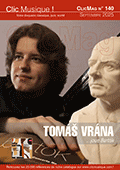 Voilà presque un demi-siècle que Michael Nyman compose pour le cinéma. Peter Greenaway le fit découvrir au grand public dans Meurtre dans un jardin anglais et Jane Campion en fit une célébrité de la musique « contemporaine » grâce à l'immense succès de la Leçon de piano. Cet enregistrement de Jeroen van Veen regroupe toutes les versions de ses musiques de film, transcrites pour piano par le compositeur. Nombres d'entre elles sont très convaincantes, même si certaines pâtissent de l'abandon des timbres de l'orchestre original, et d'un affaiblissement de la rythmique. Le caractère mélancolique de ces musiques est ici plus évident, en partie du à l'interprétation. Des impressions debussistes et des accents de gnossiennes saisissent parfois l'auditeur, l'élégance des harmonies, simples et originales à la fois, et la finesse des mélodies finissent de convaincre. Souvent moins bien considéré que certains autres compositeurs de musique minimaliste (car plus connu pour ses contributions au cinéma que pour ses autres œuvres ? Écoutez la MGV ou son concerto pour saxophone Where the bee dances, vous jugerez), Michael Nyman n'en reste pas moins un excellent créateur d'univers et un formidable rythmicien, cet enregistrement en est la preuve. N'est-ce pas exactement ce qu'on attend de la musique dans un film ? (Jean-Michel Hey)  Jeroen van Veen’s recordings of Minimalist piano music have received critical acclaim while also reaching a wide and receptive audience. Previous albums of Satie (BC94768), Einaudi (BC9452), Glass (BC9519), Riley (BC95217) and much more are now joined by the music of Michael Nyman, who may not have invented the genre as Satie did, but was the first to bring Glass, Reich and their contemporaries to wider attention and coin the term Minimalism to describe the way that they rebelled against European modernism and returned to a stripped-back tonality in ways that meshed with popular music of the time. Nyman himself has remarked that ‘I'm not a great inventor from scratch. What I do is to use, steal, acquire, reproduce or re-cycle music from other musicians.’ Although his skill at composing within the restrictions of specific commissions is well known, his relationship with the film-maker Peter Greenaway, represented here by music used in The Draughtman’s Contract, Drowning By Numbers and A Zed & Two Noughts, involved a free brief where he largely wrote with a subject in mind before filming took place. When it came to perhaps his best-known music, for The Piano, the director Jane Campion recognised that, in Nyman’s words, ‘I was one of the few composers that could create a whole tangible definable world through sound. But then she said, “I don't want any of that Greenaway crap.”’ So he wrote much more flowing music, exemplified by the film’s bestknown number and now a modern classic, ‘The heart asks pleasure first’. According to Nyman, ‘I write everything at the piano. I like the idea whereby an instrument can be percussive at one moment, lyric at another, carrying the melody at one point, and suddenly becoming the rhythm section. Since my music evolves directly from my piano playing, I think more in terms of attack, dynamics, and articulation rather than how tone colours sound.’ In addition to the incidental music for films by Greenaway and Campion, Jeroen van Veen has recorded some of the most memorable numbers from Nyman’s other work for cinema, including Wonderland, The End of the Affair, Carrington and The Diary of Anne Frank.
 |
